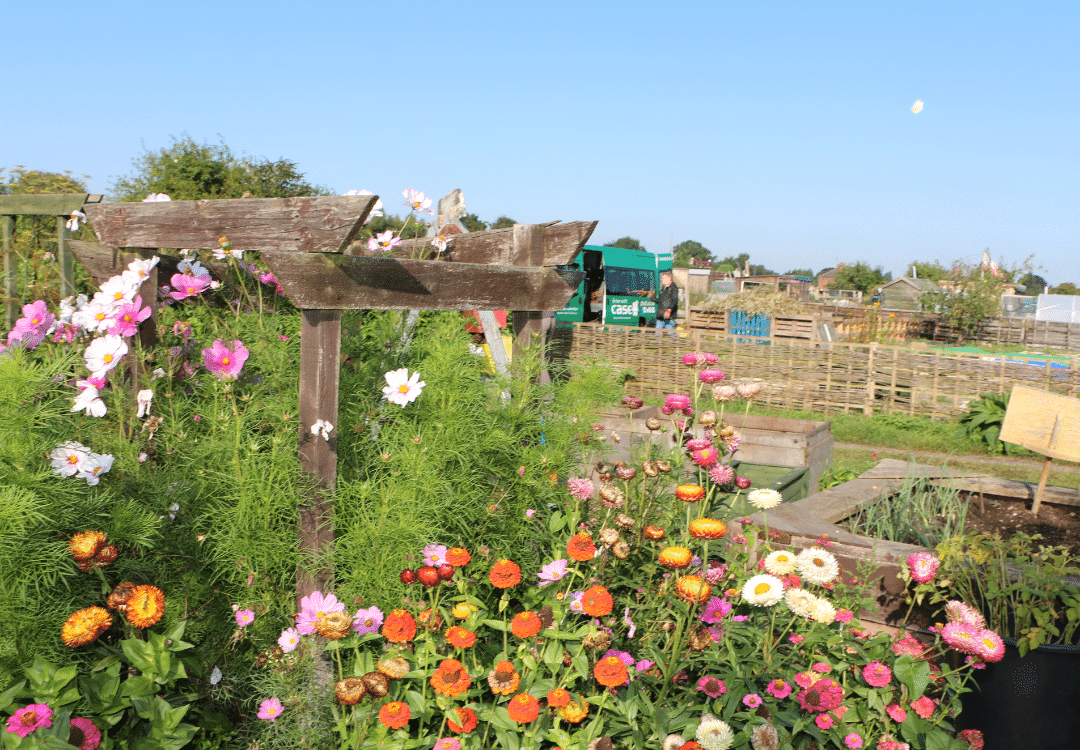Dear friends,
Welcome back to our CASE Training Centre guide! Today we are going to explore our allotment, which is undergoing some BIG and exciting developments.
These mini-guides are a good opportunity for you to explore each area of our fantastic CASE Training Centre before you plan a visit. We hope you enjoy getting to know where our trainees work, rest, and play!
At our allotment plot, you will find…
Our allotment plot is separated into four learning areas (or patches) – each one is centred on the wonderful world of food harvesting, gardening, and nature. Come rain or shine, there is always something to do at the allotment! Here are some of the activities available:
1. Fruit being grown
The fruit area of our allotment includes beautiful pear and apple trees. Our trainees enjoy making seasonal crumbles once the fruits have ripened.
2. Vegetables in harvest
In the vegetable patch, trainees grow and harvest their own potatoes, marrows, butternut squash, chillis, and small pumpkins. All of this fresh produce is then picked and used during cooking and baking classes, which take part in our Independent Living Suite.
3. Beekeeping
We have two beehives which are taken care of by our resident beekeeper. One of our activities staff, Sally, is also a qualified beekeeper! Along with learning all about bees and their welfare, trainees enjoy studying honeycomb and making yummy honey.
Outdoor learning (coming soon!)
We are in the process of building an outdoor classroom, which is located nearby our plot. We also have various outhouses which are currently in repair!
These activities proved very popular during Covid restrictions and kept the trainees connected to the centre whilst they couldn’t visit our indoor areas.
The benefits of allotments
There are many benefits to spending time at an allotment, particularly for those with intellectual disabilities and autism, many of which our trainees possess to some capacity. According to Leeds Autism Services, visiting and helping to maintain an allotment plot allows individuals to:
Enjoy activities that gently stimulate the senses;
Gives a sense of purpose – especially while nurturing and taking care of plants, vegetables, etc.;
Allows them to give back to their communities.


